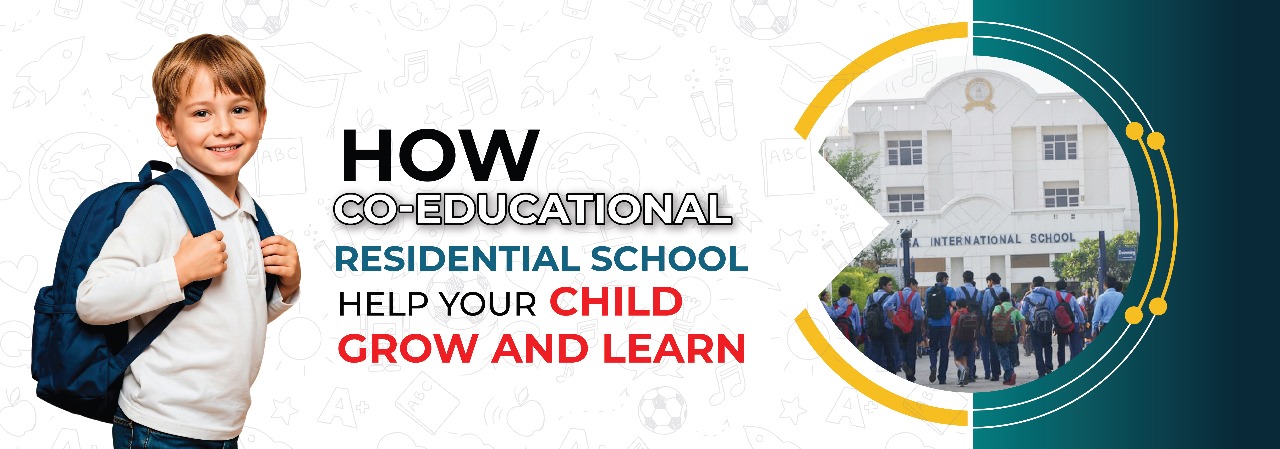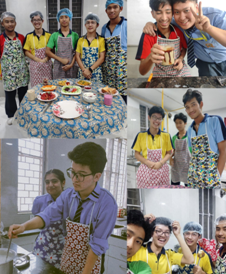GIS
- Posted on
- No Comments
- Blog
How Co-Ed Residential Schools Help Your Child Grow and Learn
Let’s get real—picking a school these days is a bit of an overload. Everyone’s offering the same: academic achievement, international exposure, discipline, and more. But what really remains with a child as she grows up? What makes her into someone who’s thoughtful, tough, and ready for the world beyond exams? For most parents, the solution has quietly moved in the direction of boarding schools, particularly the ones that integrate boys and girls into a common environment. Co-educational Boarding school in Delhi provide something special: not merely discipline, but common experience. Not merely syllabus, but society. And in Delhi, Ganga International School has been providing just that—not with publicity, but with steady, humble attention.
Learning to Be Around People Learn
Here’s the thing: life isn’t compartmentalized. The workplace won’t be. Nor will your neighborhood, or your university group assignments. Children who spend their childhood communicating only within the confines of their own gender bubble tend to miss out on learning how to just be near other people. In a co-ed school, you learn to listen to someone who does not think the way you do, talk the way you do, or even solve problems the way you do. Boys and girls work together, disagree, laugh, and lead—as equals. And it alters their vision of the world. At Ganga International, this is not treated as some grand social experiment. It simply occurs through ordinary, mundane things: a science project that requires everyone’s contribution, a drama production, an inter-house debate. The lessons occur in the in-between times.
Truly Independent Personality
It’s easy to say, “My child is independent.” It’s another to see them wake up independently, do their own laundry, schedule their study time, and get through a full day without you telling them what to do next. That’s what boarding school does. The model at Ganga International isn’t bells and timetables. It’s about instructing children on how to own their time. Sure, there are housemasters and dorm parents to keep an eye on them, but for the most part, students are learning to stand alone on their own two feet—and that’s something most day schools can’t really mimic.The Education That Occurs Beyond Classrooms
Of course education is important. But question any grown-up what influenced them the most while in school and chances are, they’ll say a school play, a game, a mentor, or a friend that transformed them. At a boarding school such as Ganga International, there is room for all of that. Children can experiment with new activities without the stress of traveling or jamming it all into a limited amount of time. They have space to breathe, make mistakes, do it again, and discover what they love doing—be it painting, cricket, robotics, or poetry. Everyone is involved. Everyone gets a chance.Intensive Academic Support
Concerned that academics can fall through the cracks in a boarding environment? Reasonable concern. But here’s the plus side: assistance is literally down the hall. Teachers at Ganga International are members of the school community. That is, extra assistance doesn’t require an appointment two weeks from now. It could simply be a final check-in following dinner, or a Saturday afternoon group study session. The school maintains small class sizes, so students don’t become lost in the sea. And because everyone’s on campus, there’s a flow to learning that carries over beyond school hours, in a way that feels organic—not contrived.Learning to Belong Without Losing Yourself
When children reside together, they develop relationships deeper than merely sitting next to one another at desks. They get to the point of reading one another, relying on one another, and at times, clashing—then resolving it. That is created intentionally at Ganga International. Structure, yes. But there is also room. Room to be your quirky self. Room to take charge if you desire, or simply sit in until you’re ready. That blend of community and individuality is difficult to create, and even more difficult to pretend. But here, it simply grows.Emotional Strength Not Buzzwords
It is simple to talk about mental health and emotional intelligence. It is a different matter altogether to build it into a child’s daily life. At Ganga International, there is no after-the-fact fixing. There is paying attention to patterns, being present, and making children feel not invisible. There are counselors and support systems, of course. But also: thoughtful wardens. Deliberate teachers. Seniors who understand the way things work. Emotional support isn’t an initiative here—it’s a culture.
Real-World Readiness, Panic-Free
In nearly every aspect, a boarding school is the most realistic thing your kid will ever experience short of opening the door to it. They’ll learn to juggle schedules, navigate disagreement, resolve conflict, and live with people that they don’t necessarily see eye to eye with. And they’ll learn to do so without a parent jumping in every time. Ganga International graduates enter college and then, professional life, with a quiet consistencies. They have lived in orderliness. They know how to ask for help. They know how to lead and when to surrender. That is not just readiness. That is resilience.
Conclusion
A co-educational residential school doesn’t simply teach children how to sit for exams. It teaches them to live—the imperfect, the unpredictable, the gloriously messy life that awaits them just outside the school gate. For parents seeking a school that understands that, Ganga International School, Delhi, is one to check out. It doesn’t simply teach children. It molds human beings.





